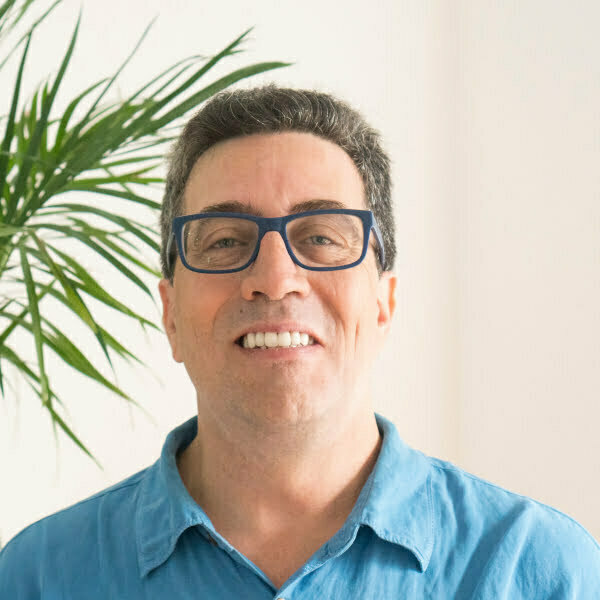


The moments following a stroke are a whirlwind of medical tests, treatments, and often, the initial burst of relief that you or your loved one has survived a life-altering medical event. Yet, once the dust settles, families are often left facing a slew of challenges they never imagined. One of the most heart-wrenching can be aphasia, a disorder that affects the ability to communicate.
The emotional journey after a stroke is multifaceted. For stroke survivors with aphasia, the inability to convey thoughts, needs, and feelings adds an extra layer of complexity to an already difficult recovery journey. Meanwhile, family members may struggle to adapt to a changed relationship dynamic and the newfound caregiving responsibilities.
Aphasia takes a considerable emotional toll on both the survivor and their family. The sense of loss can be profound—loss of words, loss of understanding, loss of a particular kind of companionship that was once effortless.
Frustration often sets in. Simple tasks like asking for a glass of water or expressing a feeling can turn into battles of patience and comprehension. For family members, deciphering what their loved one is trying to say or do can feel like solving a complex puzzle with missing pieces. You might even feel isolated, missing the easy conversations you once shared. The dynamic changes—conversations are no longer a two-way street, but a winding path with roadblocks at every turn.
Moreover, identity is closely linked with our ability to communicate. For the survivor, this new hindrance can be a blow to self-esteem and independence. For spouses, siblings, and adult children, it’s like losing a piece of the person you knew and loved, even though they are still physically present.
But here’s the silver lining: Although the path is challenging, it’s not impassable. Enter the role of speech therapy in the recovery journey. A dedicated speech-language pathologist (SLP) can offer tools, techniques, and strategies that foster improvement in communication. Therapy isn’t just about learning to talk again; it’s also about understanding and being understood in new ways. That can mean teaching survivors how to use gestures, writing, or communication apps as alternate means to express themselves.
Importantly, speech therapy also provides emotional support. The SLPs are trained not just in the mechanics of speech, but in the emotional aspects of communication. A good therapist creates a space where it’s okay to struggle, to get frustrated, and then to try again. And for family members, speech therapy can guide you on how to communicate effectively with your loved one, offering hope that you can still connect on a deep emotional level.
Building emotional resilience is crucial for both stroke survivors and their families. Emotional resilience doesn’t mean ignoring the difficulties; it means facing them head-on, acknowledging the emotional weight, and finding constructive ways to cope. Therapy can offer the routine and the framework for this, and family support fills in the emotional gaps.
Involve your family in therapy sessions whenever possible. The more family members understand the techniques and tools, the easier it becomes to integrate them into daily life. Open dialogues about the emotional challenges you’re facing. Honesty will foster a stronger emotional connection, helping all involved to cope better.
In our digital age, technology can also offer added support. There are several apps designed to aid aphasia patients in communication. While they’re not a substitute for speech therapy, they can be a helpful supplement. Sharing an app with a family member can sometimes make communication more straightforward, easing some of the daily frustrations.
Recovery is a journey, often measured in small, incremental steps. The first successfully completed sentence, the first expression of a complex thought, the first ‘I love you’ that comes out clear and strong—these are milestones worth celebrating.
In the tapestry of post-stroke recovery, it’s the threads of small victories, woven together, that create a larger, beautiful picture of progress and resilience. When your journey gets tough, remember to celebrate these achievements, no matter how small they may seem.
The road to recovery doesn’t have an end date, and that can be emotionally taxing. But remember, you’re not walking this path alone. Lean on your family, your therapists, and your community. The journey of coping with aphasia post-stroke is one that takes immense courage, patience, and love. But it’s in facing this challenge that many families discover reservoirs of strength they never knew they had. You are more resilient than you think, and there’s help and hope for a fulfilling life beyond the diagnosis.
And as you make your way through this emotional journey, take solace in the fact that every effort you put in—every word relearned, every emotional hurdle crossed—is a step closer to reclaiming the richness of your relationships and the quality of your life.
Here’s to finding new ways to speak, to understand, and to love.

Seth Koster M.S. CCC-SLP



